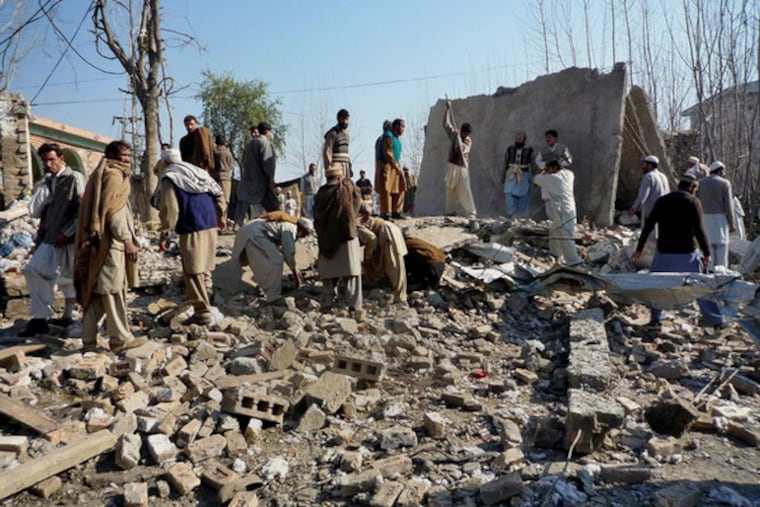In Islamabad, 5-star resolve
ISLAMABAD, Pakistan - It was a place where diplomats hobnobbed over sushi, army generals and senators married off their sons and daughters, and society matrons exchanged choice tidbits of gossip while working out in the well-appointed gym.

ISLAMABAD, Pakistan - It was a place where diplomats hobnobbed over sushi, army generals and senators married off their sons and daughters, and society matrons exchanged choice tidbits of gossip while working out in the well-appointed gym.
When suspected Islamic militants used a truck bomb to blow up the five-star Marriott hotel in the heart of Pakistan's capital three months ago, killing more than 50 people, many educated, affluent Pakistanis likened the gaping crater left behind in the parking lot to their own hollowed-out sense of security.
Yesterday, the hotel reopened for business on a limited scale - with a 14-foot-high blast wall in place, some staff members still on leave as they recover from injuries, and scores of scorched rooms waiting to be refurbished.
Uniformed bellhops and reception clerks received tearful greetings from longtime customers. Guards armed with automatic weapons patrolled the lobby while lounge music tinkled in the background. Sniffer dogs nosed parcels and purses. Many of the invited guests attending the opening - politicians, VIPs and diplomats - vowed not to let security fears keep them away.
"It's an axis of life here," said Zainab Omar, a television host and art dealer. "Islamabad is a small city, and the Marriott is really integral to our daily lives."
The crowd for high tea in the main banquet room was unmistakably well-heeled. Elegantly coiffed women wore silk and chiffon
shalwar khameez
, the traditional Pakistani dress. "Oh, I must have a quick word with the ambassador," murmured one Pakistani businessman, bowing as he excused himself.
Hotel staff seemed to share in the sense of optimism and solidarity - particularly the women. In a country where many families still urge wives and daughters to stay home, the hotel has long been a respectable place for young women to aspire to work as concierges, gym attendants or even senior managers.
Ghazala Akbar, who heads the front office after a decade with the group that owns the franchise in Pakistan, said she and other employees "worked night and day, very literally, to achieve this reopening."
Amid the celebrations, though, came grim reminders of the ever-present danger from militants who have staged a concerted campaign of suicide bombings across Pakistan over the last 18 months. A car bomber set off a powerful explosion outside a polling station yesterday in volatile northwest Pakistan, killing at least 36 people, including several children.
The attack took place in Buner, a district adjoining the scenic Swat Valley. Pakistani troops have been battling Islamic insurgents in the valley over the last year.
The bombing came as residents were voting in a provincial parliamentary by-election, using a school as a polling place. Some voters had brought their children along, and as many as four youngsters were reported killed.
At the Islamabad Marriott, the celebrants had their own visible proof of ongoing peril. The hotel, which is close to many government offices, is now a virtual fortress. New security measures include a bulletproof antechamber where luggage will be screened, better on-site firefighting equipment and a strict ban on any vehicles inside the blast wall.
Twenty-six hotel staffers were killed in the Sept. 20 attack. In a newly built courtyard where the hotel swimming pool used to be - it was choked with debris after the bombing, and officials decided to close it - people lit candles and laid flowers in front of large portraits of the dead.